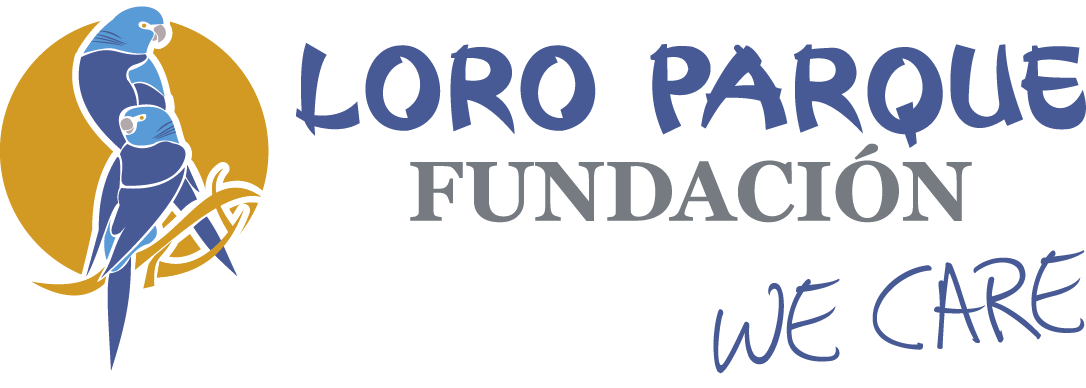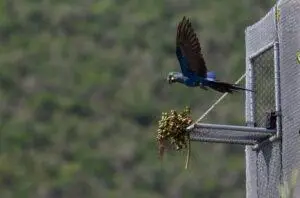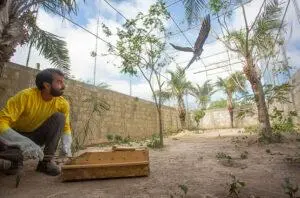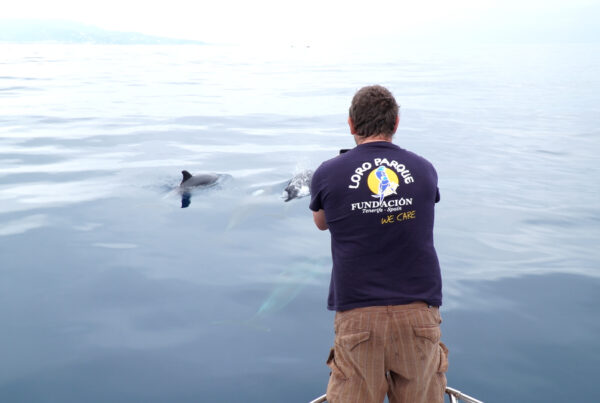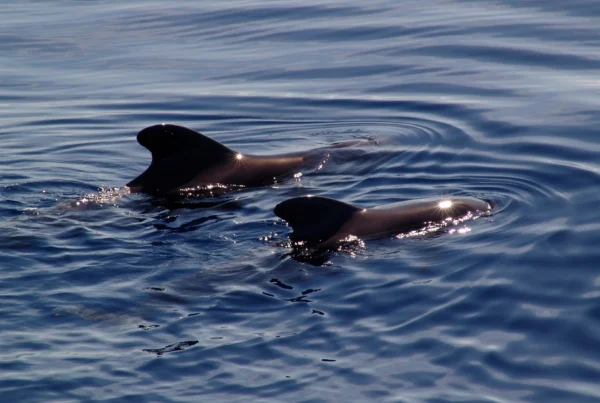
| Category | Land |
| Date | 2006 |
| Investment | 583.130,00$ |
LPF’s actions have saved the Lear’s Macaw from extinction. Among the work carried out is the reintroduction into the wild of specimens born in Tenerife.
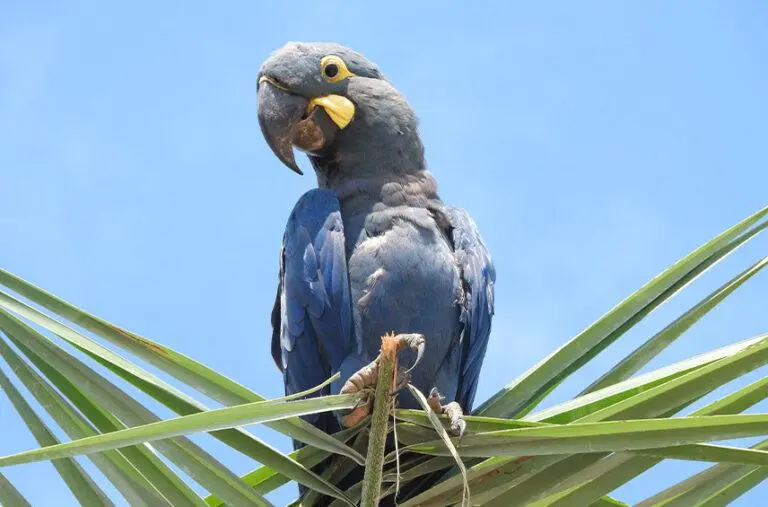
Lear’s Macaw
Conservation and reintroduction of the Lear’s Macaw
The Lear’s macaw is a species endemic to northeastern Brazil. It lives in the Caatinga, a unique arid biome of the country, where it nests in colonies on sandstone cliffs and feeds mainly on the nuts of the licuri palm (Syagrus coronata).
It was first described by science around 150 years ago based on specimens under human care, but it wasn’t until 1978 that the first wild population was identified. By 1990, only about 60 individuals remained, but thanks to intensive conservation efforts, the population has increased to 2,548 individuals recorded in 2024.
The species was listed as Critically Endangered by the IUCN from 1994 to 2008 due to habitat loss, hunting, and illegal trafficking. Although it is now listed as Endangered, it still faces major challenges. The most significant is the shortage of food—particularly licuri fruit—caused by fires that transform its habitat into farmland and grazing areas.
To reduce conflicts with farmers, Loro Parque Fundación supports a compensation program for maize crop damage, assessing and reimbursing losses caused by the macaws.
One of the most remarkable milestones has been the reintroduction in Brazil of eight individuals born in Tenerife, previously socialized with other macaws before their release. This repatriation marked a major breakthrough after a decade of ex situ work by LPF.
Since 2006, LPF has bred 49 Lear’s macaws, becoming an international leader in their care and reproduction. It also runs awareness campaigns with local communities to encourage their protection.
To date, one pair born at the facilities of Loro Parque Fundación and reintroduced in Brazil has successfully raised four chicks in the wild. This achievement confirms the value of ex situ conservation programs and renews hope for the future of the species.
BLOG
News
